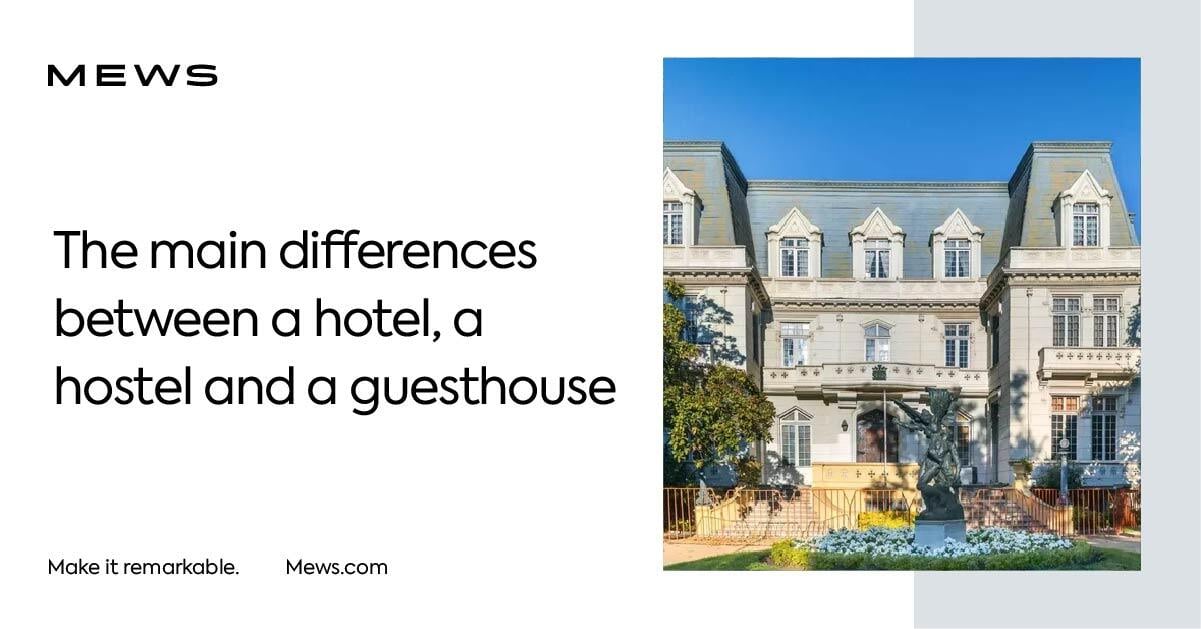What is a hostel?
A hostel is a great option when you want to save money and don’t mind giving up a bit of luxury. The services they offer are considerably simpler than those provided by hotels and, although the concept may vary from one country to another, they are generally known for their relaxed and social atmosphere— ideal for those looking for more company and less formality. Hostels were my preferred option during my backpacking years around the world.
What can you find in a hostel?
Shared or private rooms
Normally, hostels offer shared rooms, perfect for backpackers or young travelers looking to save money. However, there are also hostels with private rooms, though these tend to be quite basic and have fewer amenities than those in a hotel.

Sense of community
If you enjoy meeting new people or are looking for travel companions while travelling solo, hostels are the perfect place for you. They have common areas such as shared kitchens or lounges where you can chat with other travelers, exchange tips, and even plan your next adventure.
Convenient location
A big plus for hostels is that they are usually in the heart of the city or very close to major tourist attractions. This allows you to explore the area without spending too much on transport, which is always great when you’re travelling on a tight budget.
What is a hotel?
On the other hand, hotels are the preferred option for travelers seeking comfort, especially if they are looking for additional services and more privacy. Thinking back to my days as an avid traveller, whenever I needed to rest and disconnect from social life and shared hostel rooms, I would go to a hotel. I’ve also stayed in motels, but that’s another topic we’ll discuss in this post.
Basically, a hotel is a type of accommodation designed to offer comfort, privacy, and a wide range of services.
And what about a guesthouse?
Guesthouses, on the other hand, offer a more personal and intimate experience, especially in small towns or cities.
A guesthouse is like a cozy little retreat that makes you feel at home, but without the hassle of actually being in your own home. They are usually run by families or small groups of people, giving them a much friendlier and personal touch (don’t be surprised if they offer you a delicious coffee with freshly baked biscuits for breakfast). The rooms are simple, nothing fancy, but they have everything you need to be comfortable.
What are the differences between a hotel, a hostel, and a guesthouse?
During my trips, I had the opportunity to try these three types of accommodation, and I can assure you that each one has its own flair. The differences become clear quickly, here are the main 5:
Services
Hotels offer everything: from room service, restaurants, leisure areas and much more. Hostels, on the other hand, are more basic, with shared kitchens and common areas where you can mingle with other travelers. Normally, guesthouses don’t offer as many services, but they make up for it with a very personal attention, almost as if you were staying at a relative’s house.
Privacy
If you are looking for your own private space, both hotels and guesthouses offer private rooms. Meanwhile, hostels often have shared rooms, which are perfect if you want to save money and enjoy meeting new people.
Atmosphere
Hotels tend to be more formal and serious. The atmosphere in hostels is laid-back and social, ideal for casual conversations in the common room. Guesthouses are cozier and more family-oriented, almost as if you were a guest in someone’s home.
Price
Hostels tend to be the cheapest, followed by guesthouses. Hotels, especially the more luxurious ones, are the ones that will stretch your budget a bit further.
Size
Hotels tend to be big, with lots of rooms and services. Guesthouses and hostels, on the other hand, are usually smaller and cozier, providing a more personal touch.
In short, it all comes down to personal preference. The choice depends on what you are looking for: Do you want comfort and services? Stay in a hotel. Do you want to save money and socialise? Pick a hostel. Do you want to feel at home? A guesthouse would be perfect for you. The key is deciding what kind of experience you want for your trip, based on your budget, your lifestyle, etc.

Which option offers the best value for money?
Depending on your priorities, the best option in terms of value for money can vary widely. In my experience, hostels are ideal if you’re looking for a good value for money, especially if you want a social atmosphere and to save a bit of money. If you are looking for a quieter and more tailored option, but don’t want to pay hotel prices, guesthouses offer the perfect balance between cost and comfort, with a more personalized service.
Lastly, if what you want is to enjoy all the comforts and you don’t mind spending a little more, hotels are the best choice. They provide privacy and a wider range of services.
If you want to learn more about the different types of hotels and explore the different options, I recommend reading these articles: Hotel classifications, Benefits of staying in serviced apartments and What is a hostel. This will give you an even broader view to help you choose the best option for your next trip.
How to choose the right software to manage a hotel or hostel?
Running the operations of your hotel, hostel or guesthouse using a reliable hotel management software is like having a co-pilot taking care of the minor issues while you focus on making everything run smoothly. Whether you run a small 10-room hostel or a large luxury hotel, the right software can make things much easier for everyone—both owners and staff.
Why is this important? Because running an accommodation is more than just booking rooms. You need to organise check-ins, coordinate cleaning, handle payments, and all that without neglecting your customer service. And, of course, everything has to be in sync. Without an efficient system, things can quickly become complicated. Furthermore, with the right software, you can automate repetitive tasks, avoid the chaos associated with overbookings and optimize your time, leaving you more room to focus on what truly matters: enhancing your guests’ experience.
A hotel management software like Mews helps you manage all of this with ease. One of its main benefits is that it centralizes all operations on a single platform. You can handle reservations, track check-ins and check-outs, and manage payments — all from one place, without the need to switch back and forth between different systems. It is also flexible, which means it can be adapted to a small hostel or a large hotel.
Another advantage is that Mews also provides an easy way to integrate with other tools you may be using, such as online booking platforms. And the best part? It’s intuitive and easy to use, so you don’t need to be a tech expert to get the most out of it. The result? Time savings, better organization, and happier guests.
Conclusion
Each type of accommodation has its own charm and offers different experiences. Choosing between a hotel, hostel or guesthouse depends on what you really need and how much you want to spend. From my personal experience, I can look at it from two perspectives: as a guest and as someone who has also worked in the hospitality industry. As a traveller, I have enjoyed the comfort and privacy of a good hotel, the social and friendly life of hostels, and the warmth of guesthouses, a place where you feel at home. But, from the other side, having been involved in hospitality management, I understand how important it is to deliver memorable experiences to guests and, to achieve this, having everything well organized with powerful hotel software is key.
At the end of the day, what matters most is that you choose what best suits your needs, both from a guest’s point of view and from a hotel owner’s point of view.







